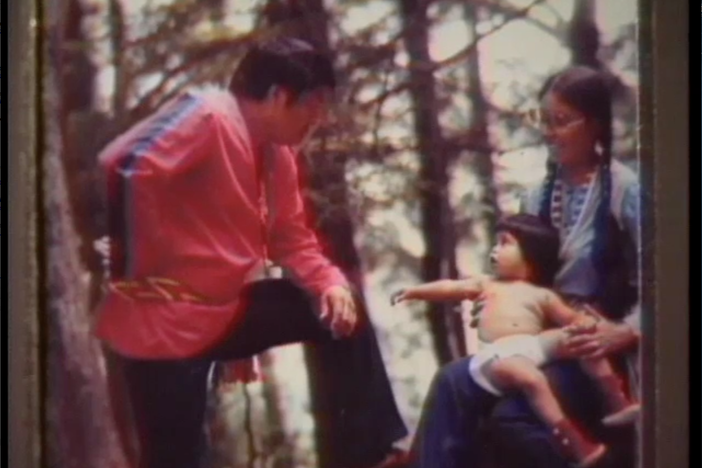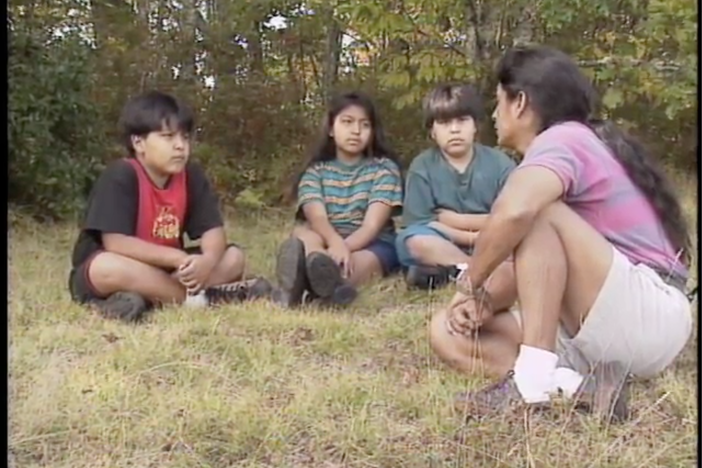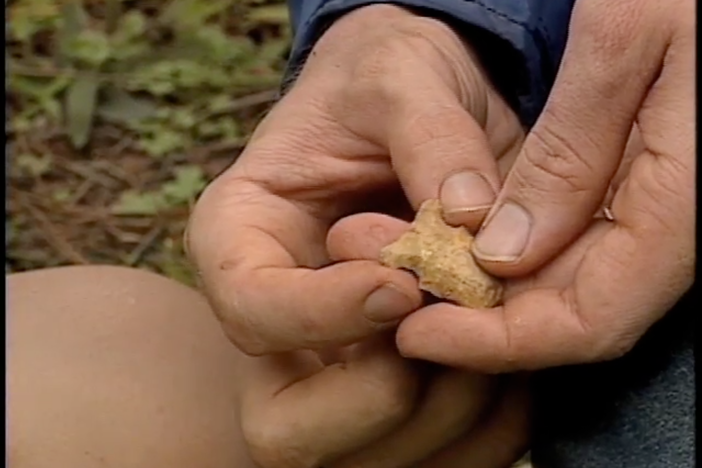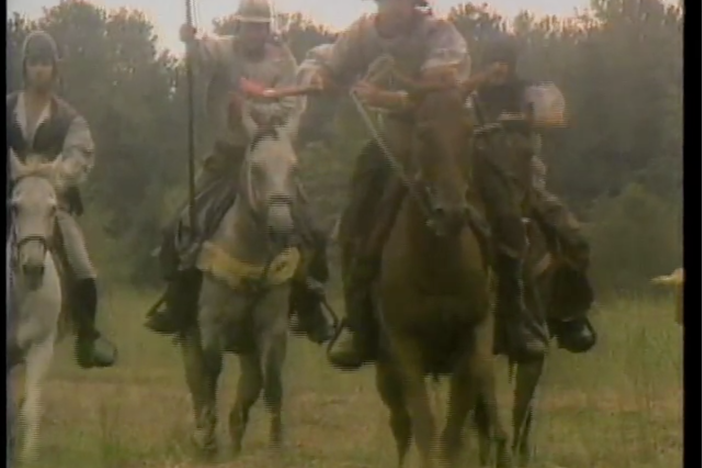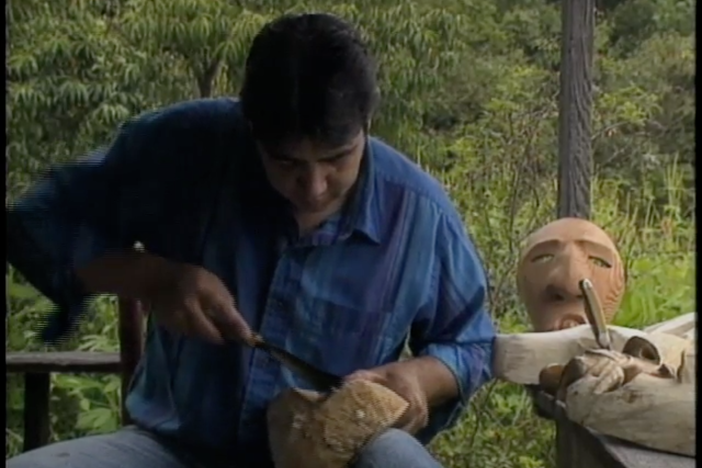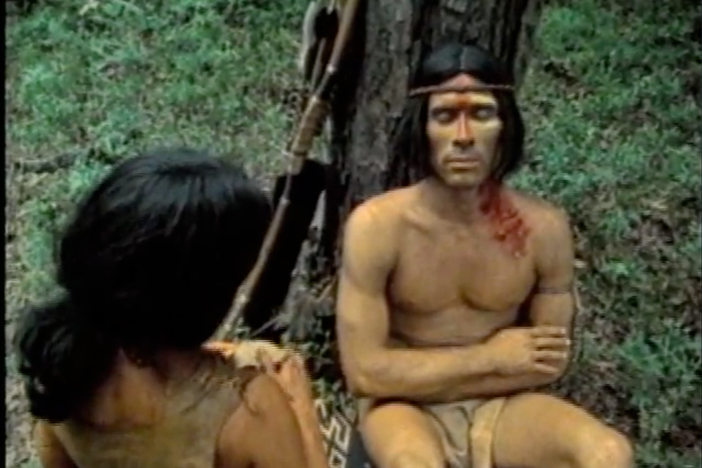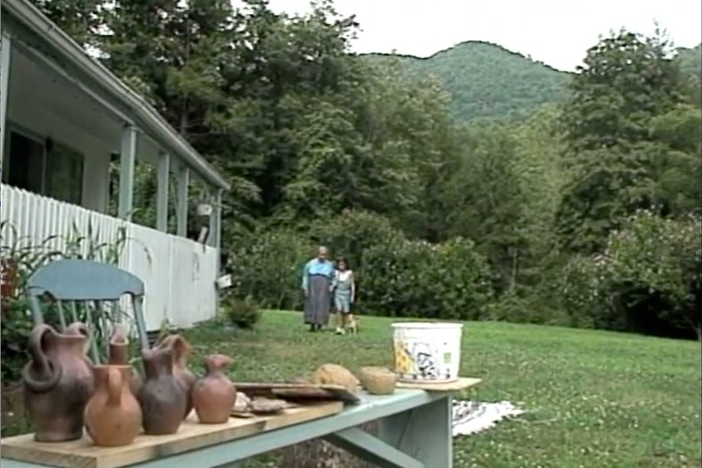Assimilation or Resistance? The Choice for Native Americans
Should the Cherokee maintain their own culture resisting that of the white man, or should they give up their ways and adopt those of white settlers? They tried to adapt to white society with the ultimate result being their virtual disappearance from Georgia. Cherokee John Standingdeer recounts the legend.
Assimilation or Resistance? The Choice for Native Americans
Should the Cherokee maintain their own culture resisting that of the white man, or should they give up their ways and adopt those of white settlers? They tried to adapt to white society with the ultimate result being their virtual disappearance from Georgia. Cherokee John Standingdeer recounts the legend.
Social Studies
Describe the characteristics of American Indians living in Georgia at the time of European contact; to include culture, food, weapons/tools, and shelter.
1. What are the two choices the Cherokees had when the Europeans came to the New World?
2. Compare and contrast the positive and negative effects of both choices.
3. If you had to go live in another country (i.e., Turkey, Israel, Sweden, Russia, China, Vietnam, Nepal, Brazil, Egypt) where the language, traditions, and culture were totally different, in what ways would you both adapt to their culture and, at the same time, keep your own traditions, culture, and language alive? (Remember: They don't have the same holidays, government, ways of worshipping, stores, dress, foods, etc. that we have in the United States.)
1. Record the arguments for and against the Cherokee’s choice as illustrated in this dramatization and to add one of their own for each side. Discuss the arguments and as a group decide if the best decision was made and how things could have been done differently.
2. Write a story/draw a picture (could be in the form of a cartoon) or both about the white man invading the territory of the Cherokee Indians. You should tell about the decisions that had to be made about their culture.
myth: a traditional or legendary story that has no basis in fact; usually explains a practice, rite, or natural phenomenon
legend: a story handed down by tradition from earlier times and accepted as historical immortals: not subject to death everlasting
culture: a way of life shared by people with similar arts, beliefs, and customs
self-sufficiency: ability to provide for one’s needs without outside help
oral tradition: passing down statements, beliefs, legends, customs, information from generation to generation without writing it down
1. What are the two choices the Cherokees had when the Europeans came to the New World?
They had to decide whether to accept what the white man (Europeans) offered: metal axes, guns, tools, shiny, colorful ribbons and cloth or keep their culture as it was and live off the land, but, perhaps, lose it when the white man took over.
2. Compare and contrast the positive and negative effects of both choices.
Some of the possible points could include
Positive: Negative:
The guns would make hunting easier They would have to keep buying/ trading for guns
They could have pretty clothes and ribbons They would have to continue to make their own clothes that were less colorful
They would be able to kill more deer The deer population would die out
They would not have to work as hard They would become more dependent on the white man rather than themselves
3. If you had to go live in another country (i.e., Turkey, Israel, Sweden, Russia, China, Vietnam, Nepal, Brazil, Egypt) where the language, traditions, and culture were totally different, in what ways would you both adapt to their culture and, at the same time, keep your own traditions, culture, and language alive? (Remember: They don't have the same holidays, government, ways of worshipping, stores, dress, foods, etc. that we have in the United States.)
Some students (or other faculty or staff members) may already have experienced this kind of living. Ask them to explain to the class what it was really like. Brainstorm with the class what they might have to change about their lives if they were living in another country: language, where they shopped, clothes, TV, radio, transportation, security, where they lived (apartment vs. house), etc. Help them to realize that the longer they stayed in this environment with people of different culture surrounding them – as the minority – that they might change in order to fit in. What would they change? What would they try to keep of their own culture and lifestyle?
